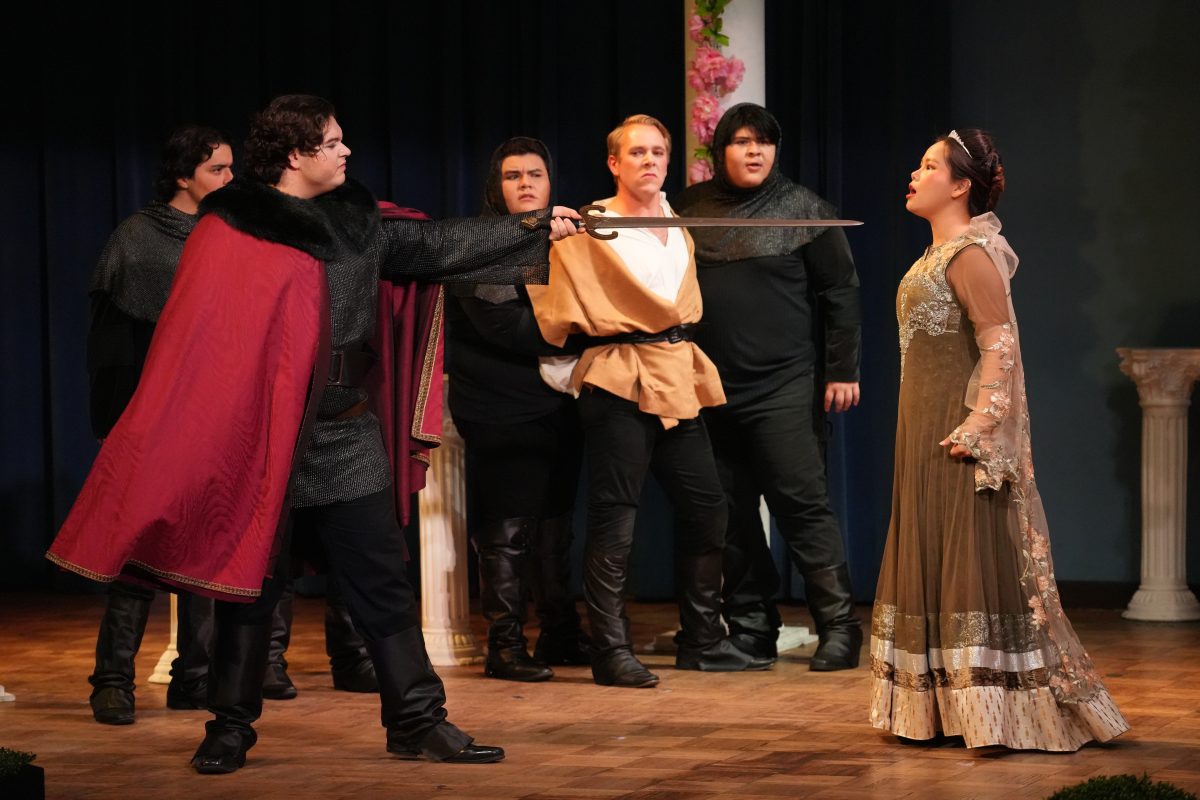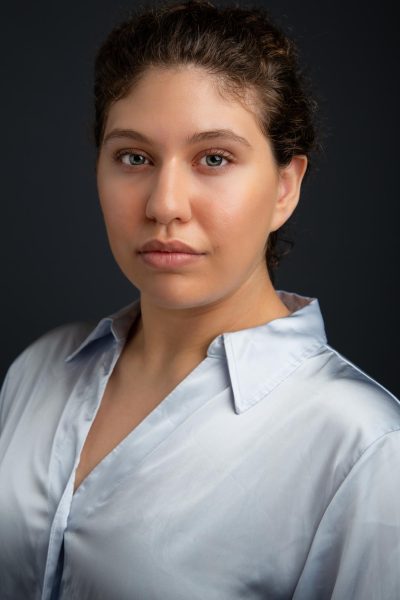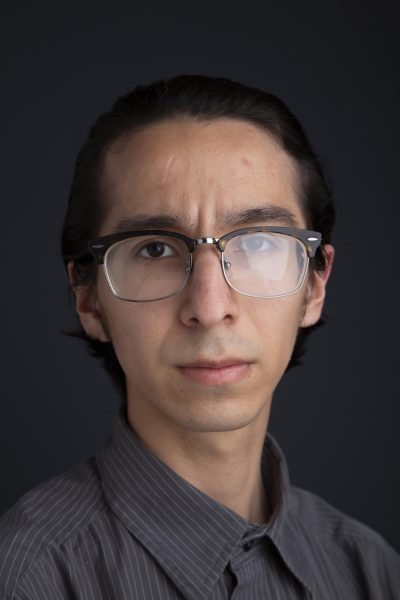The voices of the Fullerton College operatic singers rang out in a passionate bliss on Saturday, Feb. 3 during their production “The Coming Revolution!” Whilst performing a single act from famous operas “The Marriage of Figaro” and “Guillaume Tell,” the cast delivered a message of the importance of freedom to their audience all in two different languages.
The Opera Program chose Act I of “The Marriage of Figaro” and the final act of “Guillaume Tell” to hilariously and emotionally display the message of the production.
In the first act of “The Marriage of Figaro,” main characters Figaro and Susanna are getting married. However, Count Almaviva wants to sleep with Susanna before the marriage takes place. Because of this, the Count tries to stall the wedding in any way he can to complete this task. This a nod to an old tradition that allowed the nobility that ruled over an area to sleep with any bride on their wedding night.
In the final act of “Guillaume Tell,” Switzerland is being occupied by the government of Austria. On the day of the celebration of 100 years of occupation, the Austrians want the Swiss to dance in commemoration of their own oppression. Main character Guillaume Tell refuses to do this and so as punishment from Austrian governor Gesler, he is forced to shoot an apple off his son’s head.
The opera’s used in “The Coming Revolution!” were originally written to depict the power imbalance and tension between the lower and upper classes of the late 18th and early 19th century. The plot of “Guillaume Tell” is believed by many to have foreshadowed the revolutions that broke out in 19th century Europe. A few years after “The Marriage of Figaro” was released to the public, the French Revolution broke out.
Faculty Coordinator and Director of the production Aram Barsamian, told of the method in which the cast acted through song. “Instead of having dialogue, we have a thing called recitative. This is where dialogue is sung while imitating the inflection of speech.”
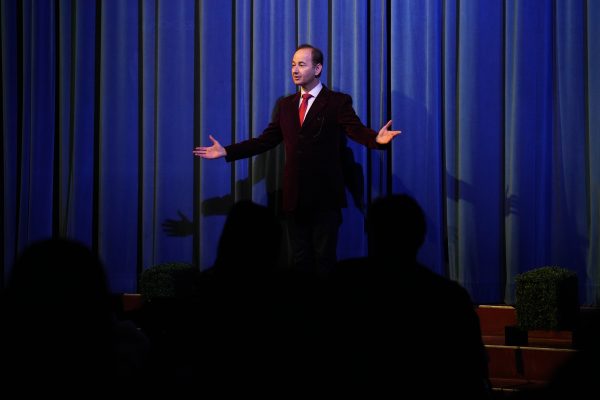
Most operas use recitative and this one is no different. While they used this method, they also sang completely in Italian and French, the two languages that “The Marriage of Figaro” and “Guillaume Tell” were originally written and composed in.
“I had to teach our students the Italian and French [in the pieces] and the inflection of the Italian language so that they would know how to imitate that while singing on stage,” said Barsamian. “This is so it would sound natural.”
Since it can be predicted that most of the audience would not have been able to understand the languages being used, the program took it upon themselves to have English subtitles above the production. However, the production could have done without it as the acting from the cast was found to be more than enough for people to understand the plot.
Born in Communist Bulgaria and raised in Lebanon, this production is personal to Barsamian.
“For me, growing up without free speech and without freedom of expression and then at 16 coming to the United States and having freedom of speech was confusing for me,” told Barsamian. “For me, the celebration of freedom that most people in the U.S. were born into and take for granted is a very big deal.”
Because of this, he wanted his cast to relay the importance and privilege of free speech to the people watching.
“I always tell my students, ‘I want you to know that through your art, you have something important to say to the world.’ That’s what art should do,” said Barsamian.
Carter Topel who played “Figaro” and “Gesler” in the program told of the way he absorbed the message given to him by his director.
“Whenever your director tells you anything, you always regurgitate it to some point when you first learn it,” said Topel. “But the only way you can become a storyteller is when the message finally clicks and you absorb it. In the end, I really feel like I was emanating the message about freedom.”
Through the actors and actresses performance alone, anyone watching this performance can tell that the cast is not just acting. They are relaying a message that they themselves believe in.
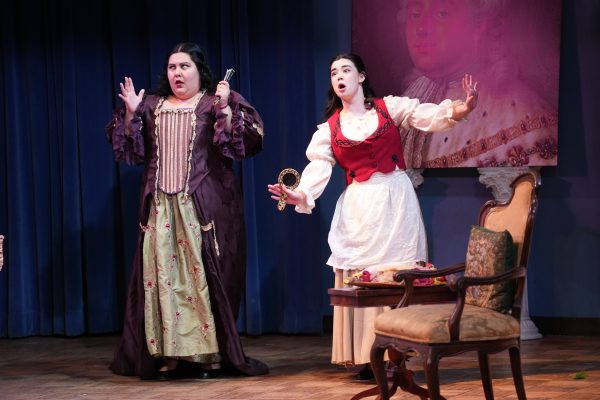
The program was also elevated through the use of lighting. While the production had the disadvantage of a somewhat small stage and a limited amount of props, the lighting alone helped advance the cast’s moments of intense emotion.
A moment of rage would be intensified through the deep reds of the stage lights as well as with passionate moments of love that became more apparent through the use of magenta hues.
While limited, the props they did have helped the audience to clearly see the symbolism being presented.
A picture of King Louis XVI was seen hanging behind the cast in a way that made it known he was an ever-looming presence in the lives of all that lived in France. The styrofoam head used as a bust of the king at the beginning of the play was lovingly looked on by Figaro. However, in the end it was impaled by Figaro after all the troubles he faced caused by people in the upper class.
The cast practiced the music and words throughout the Fall 2023 semester and it was apparent in the voices of the cast. Elizabeth Ford who played Mathilde in “Guillaume Tell” gave a performance with a voice of such versatility and range that it could send goosebumps up one’s spine.
At the very end of the program, the loud applause from the audience was silenced by a song of liberty from the cast. As their message of “Liberty descends from the Heavens!” was echoed, the lighting became brighter as a way to show that freedom and justice will always hold true to society.
The Opera Program will be having an upcoming performance in the summer of this year. Visit their website for updates and information.

